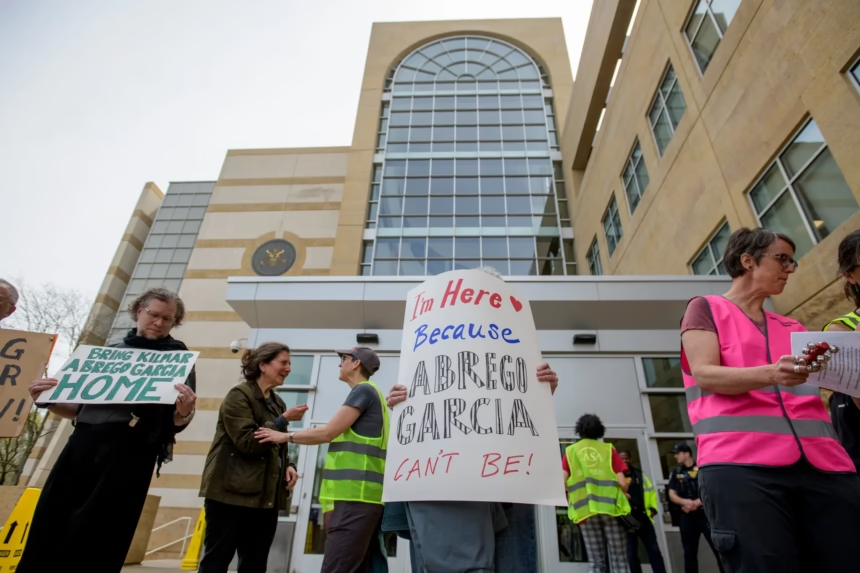A federal judge has ordered the Trump administration to bring back to the United States a Maryland man who was mistakenly deported to El Salvador despite a court ruling in his favor.
Judge Paula Xinis, presiding in Greenbelt, Maryland, gave authorities until Monday evening to rectify what she described as an “illegal deportation,” according to The New York Times.
Kilmar Armando Abrego Garcia, a Salvadoran immigrant whose wife and children are U.S. citizens, was arrested and then deported on March 15, without proper legal procedures being followed.
According to the judge, the government’s decision to send Mr. Garcia back to a country where he was placed in a notorious prison lacked any legal basis.
“When there are accusations of ties to criminal groups, they must be handled through a rigorous legal process — and that is not what I’ve seen here,” Judge Xinis said during the hearing, as reported by The New York Times.
The case highlights the growing pressure from the executive branch to accelerate deportations, often based on alleged gang affiliations, such as with MS-13. Although the Department of Justice accuses Mr. Abrego Garcia of having links to this criminal organization, the evidence presented so far appears weak, and Mr. Garcia firmly denies any involvement, The New York Times reported.
The Trump administration, in recent court documents, admitted that Mr. Abrego Garcia’s deportation was a mistake, but suggested it would be difficult to bring him back. This argument did not convince the judge, who emphasized the government’s responsibility to correct its errors.
Outside the courthouse on Friday, protesters expressed their solidarity with Mr. Abrego Garcia, calling for greater justice and strict respect for migrants’ rights.
Mr. Abrego Garcia is not the only immigrant wrongly deported to El Salvador. Lawyers for several other individuals have claimed their clients’ innocence. One such case involves a Venezuelan professional soccer player who was deported to El Salvador simply for having a tattoo of his favorite team, Real Madrid. The government interpreted the tattoo as proof of affiliation with the Central American gang Tren de Aragua.







